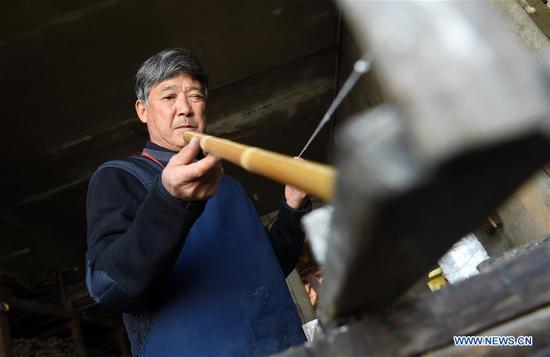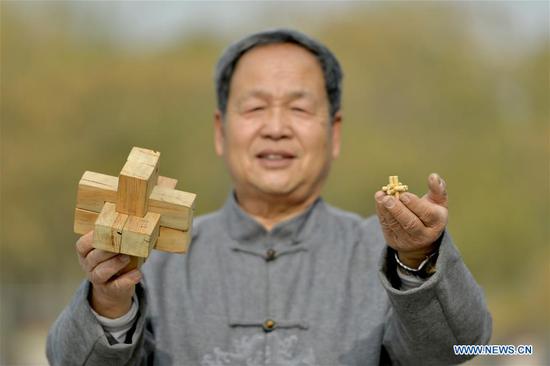The mutational mechanism of a rare and deadly brain cancer has been uncovered by scientists from the Hong Kong University of Science and Technology, providing new therapeutic lead to the disease.
Starting off at nerve cells around the spine and brain, lower-grade glioma (LGG) is the early form of sGBM -- one of the deadliest brain cancers. While sGBM can be treated with surgery or an oral chemotherapy drug, most of these malign tumors would mutate and return with mortality rate reaching almost 100 percent.
In their latest study made public on Monday, the team led by Wang Jiguang, assistant professor at the university's Division of Life Science and Department of Chemical and Biological Engineering, analyzed and integrated the genomic data of 188 sGBM patients, including newly collected samples from Chinese mainland and South Korean patients.
The study found that about 14 percent of the sampled sGBM patients displayed mutations in this gene.
Taking reference from this discovery, the university's collaborators, Jiang Tao and his team from Beijing Neurosurgical Institute and Beijing Tiantan Hospital, identified a drug molecule named PLB-1001 that can reach the tumors in the brain.
The molecule shows remarkable potency in selectively targeting sGBM tumors and those displaying further gene mutations.
The clinical trial of PLB-1001 on 18 recurrent patients at late cancer stage returned with a partial positive response in two patients.
After being prescribed a daily dosage ranging from 50 to 300 mg at Beijing Tiantan Hospital, the two patients experienced significant tumor shrinkage, with relieved symptoms and little side effects, lasting for more than 12 weeks.
The outcome of this clinical trial is significant in a sense that it furthers the knowledge about sGBM treatment, Wang said, adding that developing computational models on cancer evolution helps predict cancer cells' future behavior and prioritize treatment options.
Wang said more studies on PLB-1001 are needed to see if it can be used in conjunction with other drugs in achieving more persistent results.
The findings were published in scientific journal Cell on Nov. 29.


















































